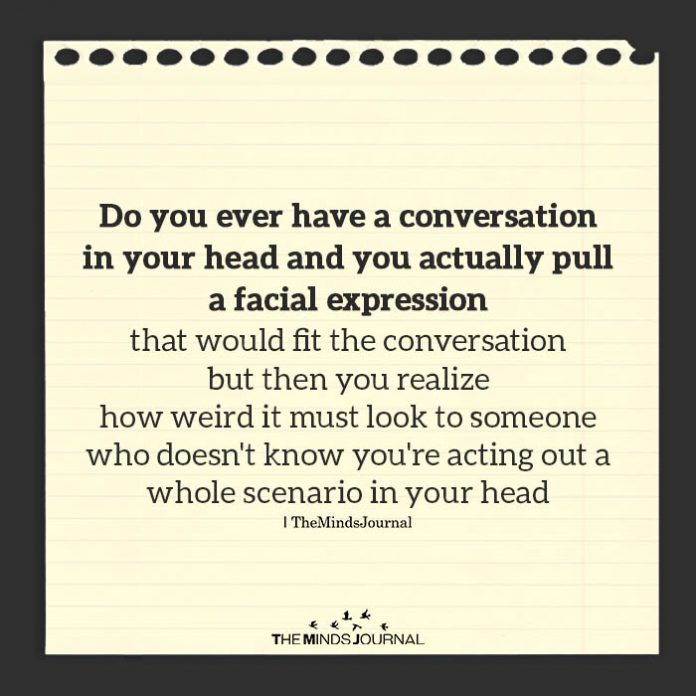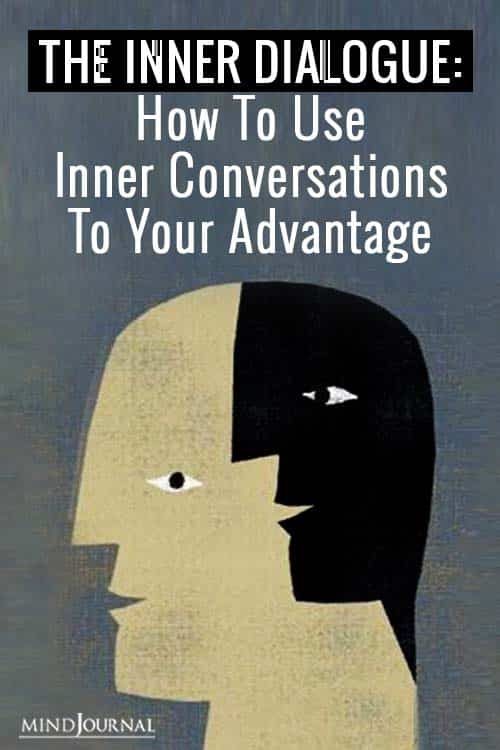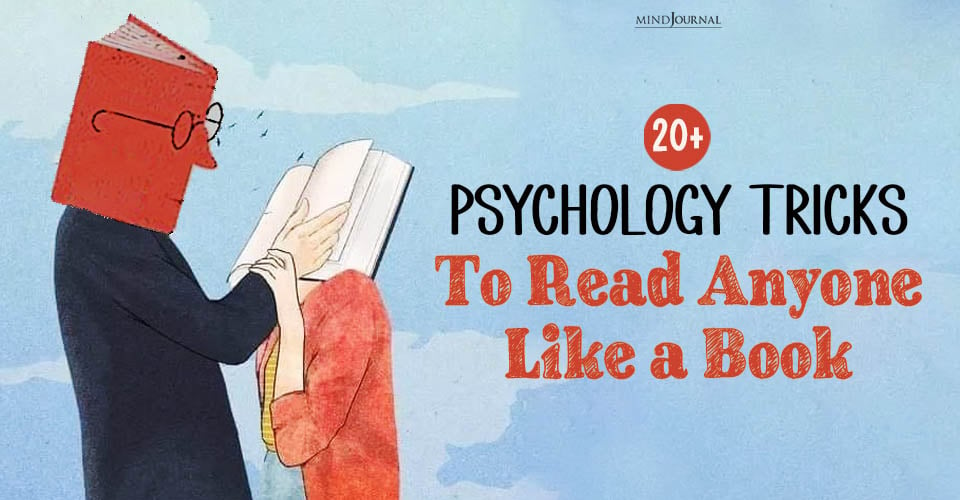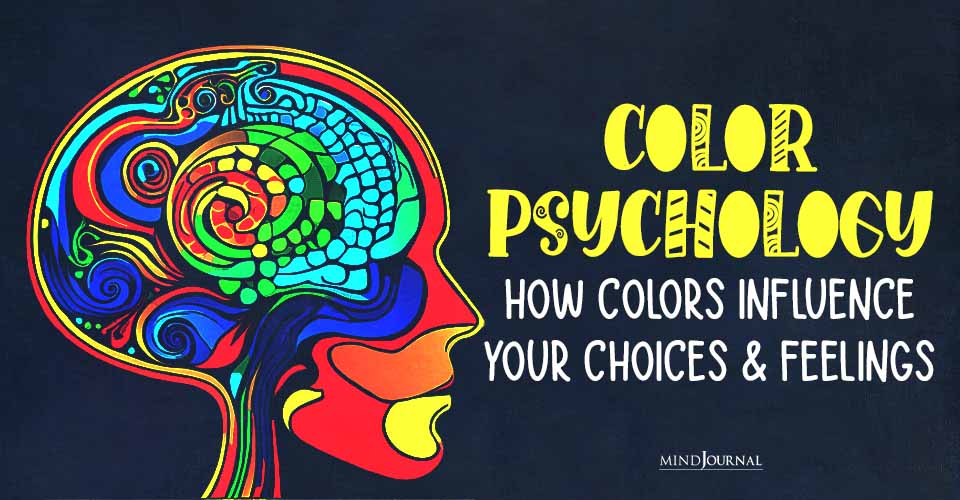We all have an inner voice with which we have conversations about our deepest feelings and desires. It is known as the inner dialogue. Due to the mechanisms in the brain, we tend to have inner conversations or engage in self-talking.
Do you talk with yourself? When we hear people talking aloud with themselves, we consider this to be weird. This, of course, refers to talking aloud. However, almost all people conduct an automatic inner dialogue, inner conversation in their mind, of which, other people are mostly unaware.
People talk silently with themselves, in their minds. This, we do not consider as odd or weird, but as natural.

It is the habit of the mind to keep thinking, keep conducting internal dialogues.
- Do you sometimes ask yourself, “Does he love me?”, and then start discussing this matter in your mind?
- Do you keep wondering and thinking, “Will I get the promotion?”
- Do you sometimes, keep torturing yourself with the questions, “Why did he say that? Why did she do that?”
- Just think of all the times you tried to convince yourself to do something or avoid doing it. You kept searching in your mind for reasons and excuses, why you need to do to something or avoid doing it.
- How many times you have commented, analyzed or expressed your opinion about various matters in your mind?
As you see, this is a natural and common activity.
There is a continuous conversation going on in everyone’s head.
Related: The 5 Types of Self-Talk Your Brain Likes Best
A lot of energy, time and attention is wasted on discussing meaningless, unimportant matters. This conversation goes on from the moment of waking until falling asleep.
If someone hurts you in some way or says something you do not like, what do you do?
You enact a whole scene of anger in your mind. You envision yourself talking angrily, shouting, and saying not so nice things.
If you are seeking a new job, do you repeatedly tell yourself that you are not going to get this job or that you are not skilled enough? This is a discouraging process that leads to unnecessary worrying and mental exhaustion.
Do you spend hours in such negative, destructive inner dialogues? Do you really need this kind of internal dialogue?
Actually, it happens by itself. It is a habit of the mind, but this does not mean that we have to leave it as such and accept it.
The Internal Dialogue Definition
The explanations above have certainly made it clear what does internal dialogue means.
Related: How To Keep a Conversation Going? The Art Of Listening For Hooks
Here are a few short definitions:
- The process of asking yourself questions and answering them.
- The process of repeating words and thoughts in the mind.
- It is the little voice in your head that comments on your life, circumstances and situations, and on other people.
- Wikipedia defines it as, “An internal monologue, also called self-talk, inner speech, inner discourse or internal discourse, is a person’s inner voice which provides a running verbal monologue of thoughts while they are conscious.”
Sometimes, it is a dialogue with ourselves, and sometimes, it is just a monologue.
The Nonstop Inner Dialogue
The inner dialogue continues while working, studying, reading, watching TV, talking, walking and eating.
There is a constant activity of judging people, commenting on what is going on, planning, gossiping, and conducting mental conversations with people you know or don’t know.
These inner talks create a snowball effect. The more you conduct them, the more you become chained to them, unable to stop them. When the emotions are also evoked, more power, energy and attachment are added. This has an adverse effect on the behavior, judgment and general performance.
Related: The Art of Conversation: 25 Great Conversation Starters
On many occasions, the inner dialogue is negative and strengthens any negative attitude or behavior.
Most people do not have enough faith in themselves and in their abilities, and therefore, they allow their mind to engage in negative inner dialogues.
The process and effects of these inner conversations are similar to repeating affirmations. Constant thinking about the same subject affects the subconscious mind, which consequently, accepts these thoughts and words and acts on them.
Negative inner dialogues create negative results, and positive inner dialogues create positive results. That’s why you should switch to positive self talk.
It’s simple. If you fill your mind with negative dialogues, you start expecting negative results, lose motivation and avoid taking action.
On the other hand, if you keep conducting positive dialogues, you become a more positive person, seek opportunities and take action.
How to Use Inner Conversations to Your Advantage
Inner conversation is an automatic activity, which goes on whether you are aware of it or not. If you learn to become aware of it, you gain the ability to control it. You can turn it into a positive dialogue. If you do that, you come to realize that you have a mighty power in your possession.
How to do that? Try to be merely aware of your thoughts and internal conversations.
1. Calmly, try to watch what is going in your mind, even if after a few moments you might forget to do so.
The inner dialogue goes on, even when physically, you are engaged with something else. It is not so easy to mentally separate oneself from the thoughts and words that flow through the mind.
2. Over and again, strive to keep your attention on what is going inside your head, and eventually, you will be able to become aware of the inner dialogue for longer periods of time.
Watching the mind and what is going on inside it develops detachment, and this makes it easier to control the mind and its nonstop chatter.
3. Whenever you catch yourself conducting a useless, futile conversation with yourself, stop it. Change it to something more useful and meaningful. Replace the subject and the words with something more positive. It is just like listening to a recording. Why not replace it with another recording that you like? Why let this recording play by itself?
Change the words of the inner dialogue to positive ones, about good health, happiness and success.
There is another thing you can do, but this requires a certain degree of concentration and willpower. You can learn to stop this inner conversation, by ignoring it, and giving your mind a vacation from the thoughts that run in it.
Why not let the mind rest for a little while, and enjoy some rest from its incessant conversations. There will be more happiness and peace when this dialogue is silenced.
It’s okay to have an inner dialogue sometimes, but most of the time, it is just useless chatter, which distracts the attention from what you are doing at the moment. By becoming aware of it, replacing it with positive thoughts, and refusing to become involved with it, you gain the ability to control it.
If you wish to learn more about calming down your inner conversation and enjoying inner peace, you will find the book Calm Down the Nonstop Chatter of Your Mind most useful.
Related video:
Written by: Remez Sasson
Originally appeared on: Successconsciousness.com











Leave a Reply